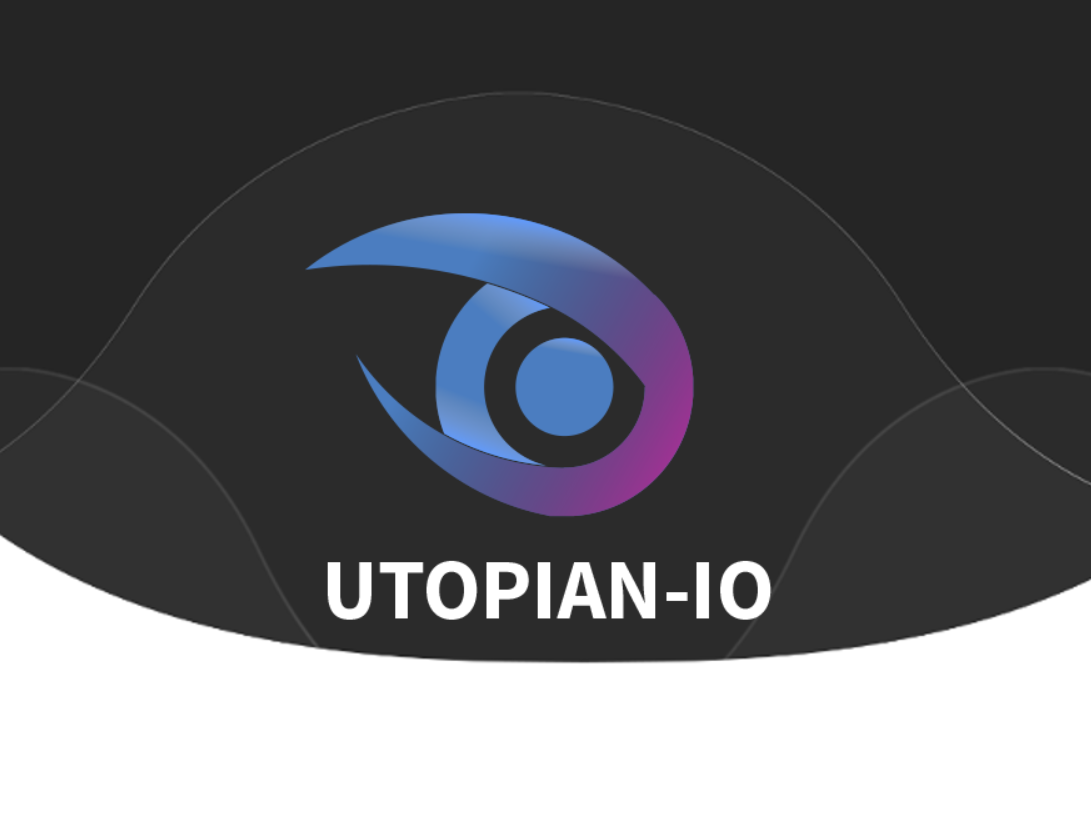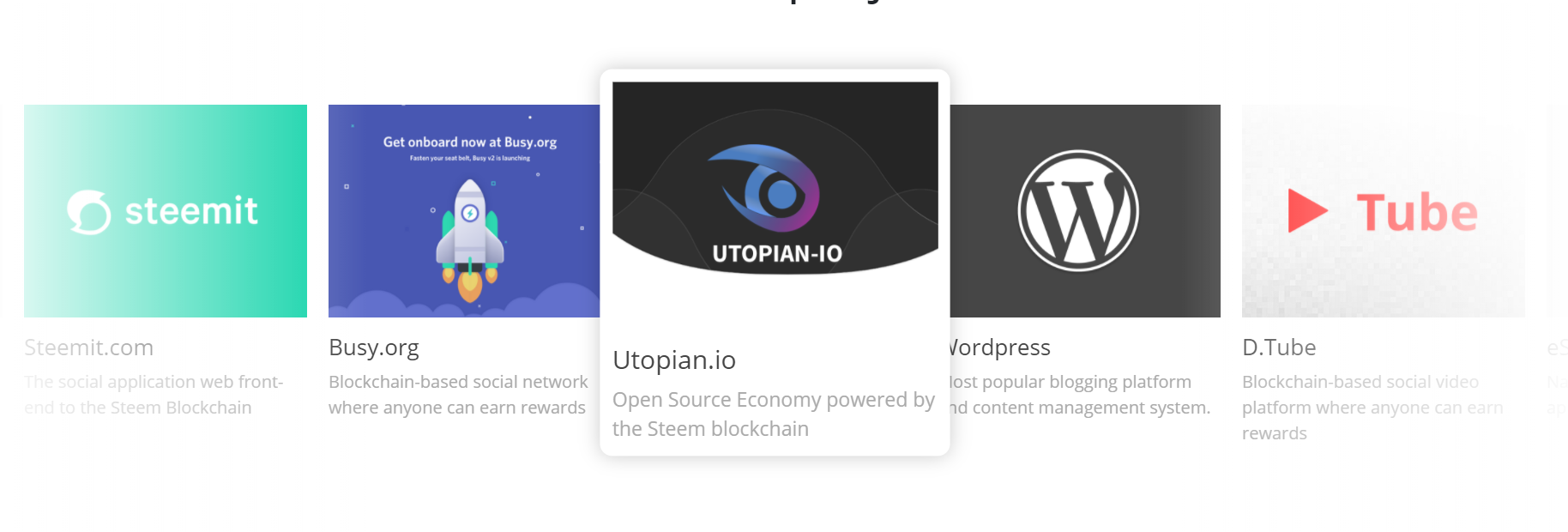Utopian.io is an Open Source Economy where anybody who contributes to Open Source projects can be rewarded for it.

Utopian.io is an Open Source Economy where anybody who contributes to Open Source projects can be rewarded for it.
You can access it by visiting its official website, and if you use Steemit you definitely stumbled upon the #utopian-io tag often – which is the tag for the posts associated with this large decentralized community.
If you already know what Utopian.io is all about, then most of this article won’t bring you news, but you’ll probably still find one or two things you didn’t know, so give it a read anyways.

Open Source Software: Because Closed-Source is too Limiting

In today’s world, open-source software is where it’s at. Closed-sourced, favored by the vast majority of company developers and businesses, but this is limiting.
Open-source has a lot of inherent advantages, and one of those is the fact that everyone can build upon what is already done, compounding effort after effort in a way that ensures the software is forever improving.
Fortunately for everyone, the number of open-source projects and software is increasing, and those projects need all the help they can get, being from geeks, developers, translators and everything in-between.
Usually, these people work for free and see little to no rewards for their hard work, but Utopian.io came to change that.
This work is done in GitHub, a place where long before Utopian.io was a thing served as the main hub for Open Source developers. You should check GitHub out!

Here Are Some Projects You’ll Be Working On:

By signing up to Utopian.io, you’ll join a huge team of individuals that do not frown upon work, and contribute every day to ensure the Open Source universe gets richer and better as time goes by.
You’ll be working at a lot of different projects, stuff like:
- Steemit;
The front-end app for the Steem Blockchain and the flagship site of the open source social app we all love; - Busy;
A Blockchain-based network that connects users in a way that resembles the popular social app “Twitter” and rewards its users for content. - Wordpress;
One of the World’s most used blogging platforms and CMS apps (Content Management System); - D.Tube;
A Blockchain-based decentralized video sharing platform with access to the Steem rewards pool;
…and more!

How Can You Contribute? What Tasks Are There to Perform?

There are a lot of ways to contribute to this Open Source Economy, and you can find something for everyone, no matter what your skillset is… you can lend a hand and be rewarded for it!
Don’t believe me?
Check out the vast array of tasks you can perform:
• Suggestions;
• Sub-Projects;
• Development;
• Bug Hunting;
• Translation;
• Graphics;
• Documentation;
• Analysis;
• Visibility;
• Tutorials;
• Video Tutorials;
• Copywriting.
As you can see, you don’t need to know how to code to help out, as you can write, design, translate, hunt for bugs, go over some documents and white papers, take part in sub-projects, record yourself teaching others about a certain software or app and much more!
On the other hand, if you aren’t looking to contribute but instead want to find some much needed help for your project, then the next section is what you’ll have to read.

Utopian.io & Project Owners: Announce, Crowdsource, Develop!

If you’re a project owner and your project is open source, the Utopian has a vast pool of only the best contributors to put their collective skill to work in improving your project.
This is great, as it allows you to call on people to:
• Bug-Hunt, finding problems in your software and test out new features;
• Code your project and fix any bugs or problems you’re experiencing;
• Think about your project and how it can change for the best;
• Translate your app to languages from all corners of the map;
• Generate data, analyze it, and make sense of those numbers;
• Get your project attention from the industry’s influencers;
• Create unique artwork, graphics and drawings for your brand, company or project;
• Write in any style, creative, technical, descriptive, friendly, informal… you name it!
…and much more!

How Are Utopian.io’s Rewards Paid: Who Pays for All That?

If you’re a project developer or a professional that wants to help, you may be asking yourself:
That all sounds great, but who’ll pay for all of that?
Well, the answer lies in the Steem blockchain. The people working in this Open Source Community get paid with that blockchain’s tokens – STEEM.
If you’re reading this as a Steemit member, you know all too well what this means, but if you’re passing around and you have no idea what I’m talking about… here it is:
• Steem is a token that gets generated and distributed according to what is known as “Proof-of-Brain”.
• Proof of Brain means that people who create or curate good content, get rewarded.
Utopian.io makes sure that the contributions are good content – that they’re quality contributions.
As such, the community creates the tokens and rewards the professional for the work they had. On the other hand, users, developers, project owners and all involved can also pay people directly through their own Steem Wallets, but this step is entirely optional.

How Is This Quality Assured? Meet the Moderators.

If you were reading the last section, you probably wondered how the project guarantees contributions are high quality and not just minor edits to grab rewards.
To ensure quality standards are respected, moderators review each project to see if it respects the community rules. If the contribution doesn’t abide by the rules, it is rejected. If it gets approved, Utopian rewards the contribution.
The Moderators also get compensated with reward Steem tokens as they work hard to ensure the quality of all contributions are assured. Currently, five percent of all rewards generated by a project go for the moderator who approved them.

Latest Utopian.io Official Blog Posts:
- What is Utopian? State Of The Art Forever Stored In The Blockchain. 107 Days Since The Beginning.
- Hard Rules VS Soft Rules To Avoid Immediate Rejection - More Rules Changes
- Utopian Rules Update #7 BIS
- Utopian Rules Update #7 - Biggest Quality Enforcement Ever
Resources:
- Utopian.io’s Facebook Page;
- Utopian.io’s Twitter;
- Utopian.io’s LinkedIn;
- Utopian.io’s GitHub;
- Utopian.io’s Website;
- Utopian.io’s Steemit.
- Meet Rising Star and Utopian Creator Elear - by @mooncryption

Posted on Utopian.io - Rewarding Open Source Contributors
